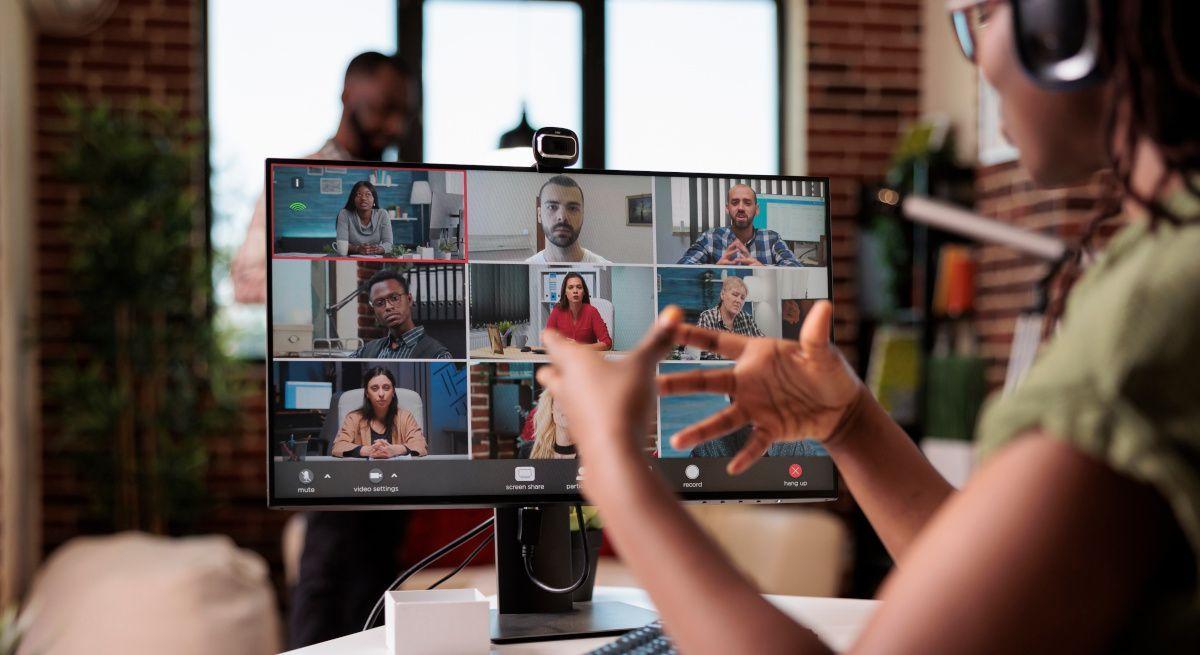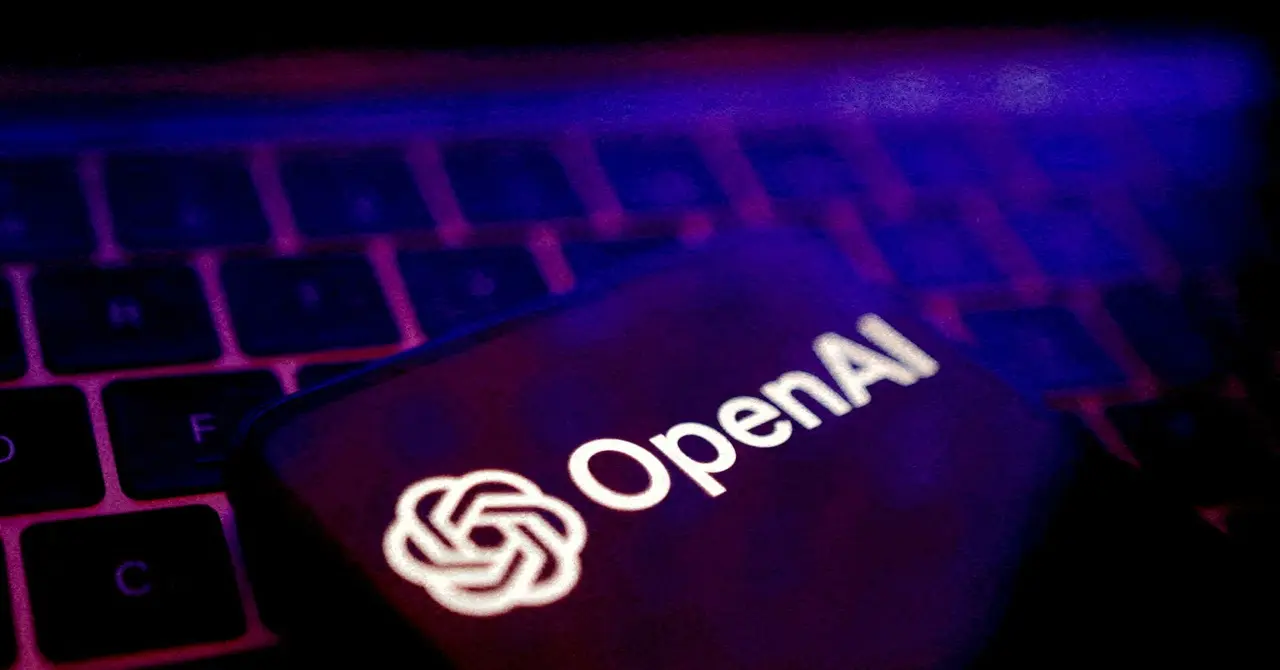AI's Impact on Remote Work: Reshaping the Future of Offices and Workplace Dynamics
3 Sources
3 Sources
[1]
Could AI help you finally escape the office? Most workers think so
Artificial intelligence is accelerating a cultural slide away from in-office work, according to a new study conducted by IT software company GoTo and market research firm Workplace Intelligence. Also: Stop using AI for these 9 work tasks - here's why Based on a survey of 2,500 workers (representing even samples of in-office, hybrid, and remote employees) across 10 countries, the study found that generative AI models, AI-powered workplace collaboration platforms, and other automated tools are making it easier for employees to work remotely. Just over half (51%) of respondents said that the technology "will eventually make physical offices obsolete," according to a press release. The majority of respondents also felt confident that the use of AI could improve their work-life balance (71%), allow them to work from anywhere without jeopardizing their current levels of productivity (66%), and allow them to provide better service to their customers while they work remotely (65%). "AI is rapidly evolving from a helpful tool to a foundational force shaping the future of work," GoTo CEO Rich Veldran said in a statement. "As these technologies mature, they're breaking down barriers to more flexible ways of working while enhancing in-person collaboration where it's most impactful." Also: Grammarly's new AI agents can detect AI text and find citations for you - automatically Veldran and his company's study suggest that employers' embrace of AI tools can lead to a more effective and harmonious workplace. But at a time when many businesses are actively encouraging their employees to spend more time at the office following the COVID-19 pandemic, the survey results seem a bit contradictory: Employers are facing huge pressure to rapidly adopt AI tools, but the use of those tools could engender the belief among employees that a return to the office is based on an antiquated model of work. How much these tools impact work also relies on how much of their potential is actually realized. Recent (and very hyped) releases like OpenAI's ChatGPT Codex, GPT-5, and Study Mode have recieved mixed reviews at best. The study also seems to vindicate some of the central marketing claims promoted by some leading tech developers, which promise that AI will boost employee productivity and -- more importantly -- well-being. Also: A whopping 30% of business leaders are comfortable taking orders from AI agents - are you? In general, the idea is that the new wave of automation will liberate human workers from the boring and time-consuming tasks that have historically eaten up a significant chunk of each workday, thereby making it possible for us to focus on more fulfilling pursuits. And while some tech leaders admit that some jobs (or even entire categories of jobs) could disappear in the unfolding AI wave, they also try to quell any anxieties by predicting that new jobs will be created to replace those that have been lost, or that we'll all soon be living in a world of such abundance and prosperity that work itself could become obsolete. Also: Patients trust AI's medical advice over doctors - even when it's wrong, study finds Thus far, the reality has been much more complicated. Many organizations have begun to implement AI tools, such as agents, into their day-to-day operations, which has raised some thorny questions about the value of human agency in the workplace, the degree to which AI could be eroding critical thinking skills among human workers, and the connections between heavy use of the technology and employee burnout.
[2]
AI isn't just replacing tasks. It's replacing the office, the manager, and maybe even the mission
The study, which surveyed 2,500 global employees and IT leaders, found that 51% of employees believe AI will eventually make physical offices obsolete. For years we've talked about how AI would change what we do at work. But now it's changing where, how, and why we work, and who we turn to for support. AI is replacing more than just tasks. It's replacing structure, feedback, and in some cases, empathy. Remote and hybrid work models are no longer just a pandemic-era compromise. They've become the preferred option for many, and AI is now powering the infrastructure behind that shift. From AI-enhanced meetings and IT support to generative assistants and automation tools, employees say the tech is delivering where the office no longer does.
[3]
Might artificial intelligence make in-person work a thing of the past?
As we continue to embrace the advantages of AI, for some, we are potentially looking at a future working landscape that thrives away from office-based setups. Despite the topic of workplace AI being a near constant in employee and employer rhetoric, there still seems to be very little consensus on how it might impact the working environment in the long-term. Some are of the opinion that artificial intelligence and similar technologies are the answer to a world that has an increasingly difficult set of challenges to overcome, while others fear its potential to reduce, even eradicate the need for human input. The more moderate know that both outcomes are possible and that when it comes down to it, AI is only as powerful as the person or people who designed it. To truly embrace what is good about a transformative piece of technology, such as AI, users have to acknowledge the potential downsides and work to overcome them, so the experience, while not perfect, is as positive as it could possibly be. One such advantage of AI, that has the potential to completely change how we view and manage our workday, is in its ability to facilitate flexible and even fully-remote working arrangements, which is the subject of a recently published global report from IT and cloud communications platform GoTo. The Pulse of Work in 2025: Trends, Truths, and the Practicality of AI report, which was conducted in partnership with research firm Workplace Intelligence, collected data from 2,500 global employees across Ireland, the US, Canada, the UK, Germany, Austria, Switzerland, India, Mexico and Brazil. Many with a background as a full-time knowledge worker or IT decision-maker. The survey sampled an even mix of employees with remote, hybrid and on-site work arrangements, as well as an even mix of IT decision-makers whose companies offer these arrangements. Changing sentiments What was discovered is that for many of the employees who contributed their insights to the survey, artificial intelligence has been "instrumental in supporting people in today's 'work from anywhere' world." More than half (51pc) of participating employees are of the opinion that AI could potentially make physical offices a thing of the past. Dan Schawbel, the managing partner of Workplace Intelligence said, "Artificial intelligence technologies have developed a reputation for facilitating flexible work models through AI-powered collaboration and meetings, generative AI tools, virtual assistants, AI-enabled IT support and more. The most actionable data to drive superior results Building better, healthier lives every day Always at the cutting edge of new innovation Unlocking the potential of biology for patients "And while not all employees are convinced that AI will do away with in-person work since for some industries and roles, this won't be possible, 62pc of employees still say they'd prefer AI-enhanced remote working over working in the office." More than 70pc believe that AI can offer greater flexibility and improve work-life balance, giving them the power to work almost anywhere (66pc). Comparatively, IT leaders were shown to be more likely than other contributing employees to report positive impacts, as nine out of 10 agreed that AI has improved outcomes for remote employees. Room to grow There was however, further discussion on whether organisations are properly leveraging AI technologies for the benefit of an increasingly remote and flexible workplace, with evidence of a disconnect in thinking between employees and those in leadership. For example, 91pc of IT Leaders involved in the report said that their company effectively uses AI to support remote and hybrid workers. However, only 53pc of remote and hybrid employees were equally of the opinion that AI is being adequately used to support their activities. More than 60pc of contributing employees believe that businesses should prioritise AI investment, in the same way that office perks are prioritised, to achieve a greater sense of balance. Reportedly, this sentiment was even shared largely by in-office employees, who would benefit more from office amenities. And this desire for workplace flexibility, powered by AI, was not just a sentiment shared by younger, more tech focused demographics, such as Gen Z or Millennials. GoTo and Workplace Intelligence's research shows that employees of all ages, who are working remotely, can benefit. Seven out of every 10 Gen X employees stated that AI improves their productivity when they are operating away from the office, with 74pc of Baby Boomers in agreement. Schawbel said, "Our study findings reflect a broader shift in workplace expectations. Many workers now see flexibility, not location or amenities, as the cornerstone of effective work. AI helps bridge time zones, streamline communication and provide access to institutional knowledge, making physical offices feel less critical to a growing number of employees." Don't miss out on the knowledge you need to succeed. Sign up for the Daily Brief, Silicon Republic's digest of need-to-know sci-tech news.
Share
Share
Copy Link
A new study reveals that AI technologies are accelerating the shift towards remote work, with many employees believing that AI could make physical offices obsolete. This trend is reshaping workplace dynamics and challenging traditional office-centric models.
AI Reshaping the Future of Work: From Office to Anywhere
A recent study conducted by IT software company GoTo and market research firm Workplace Intelligence has revealed a significant shift in workplace dynamics, driven by the rapid advancement of artificial intelligence (AI) technologies. The survey, which included 2,500 workers across 10 countries, found that AI is accelerating a cultural slide away from in-office work, potentially reshaping the future of traditional office environments
1
.AI's Impact on Remote Work and Office Obsolescence

Source: ZDNet
The study's most striking finding is that 51% of respondents believe AI "will eventually make physical offices obsolete"
1
. This sentiment is echoed across various demographics, with employees seeing AI as a key enabler of remote work:- 71% believe AI can improve their work-life balance
- 66% think AI will allow them to work from anywhere without compromising productivity
- 65% feel AI will enable better customer service while working remotely
1
These statistics suggest a growing confidence in AI's ability to support and enhance remote work arrangements, challenging the traditional office-centric model of work.
Generational Perspectives on AI and Remote Work
Interestingly, the study found that the benefits of AI-powered remote work are recognized across generations:

Source: Silicon Republic
- 70% of Gen X employees stated that AI improves their productivity when working remotely
- 74% of Baby Boomers agreed with this sentiment
3
This cross-generational acceptance indicates that AI's impact on remote work is not limited to younger, more tech-savvy demographics.
The Disconnect Between Leadership and Employees
Despite the positive outlook on AI's potential, the study revealed a significant disconnect between IT leaders and employees regarding the current implementation of AI technologies:
- 91% of IT Leaders said their company effectively uses AI to support remote and hybrid workers
- Only 53% of remote and hybrid employees shared this opinion
3
This disparity suggests that while companies are investing in AI technologies, there may be room for improvement in their practical application and employee training.
Related Stories
Challenges and Considerations
While the potential benefits of AI in enabling remote work are clear, the study also highlights some challenges and considerations:
- The pressure on businesses to adopt AI tools rapidly, while simultaneously encouraging office returns, creates a potential conflict
1
. - Questions arise about the impact of AI on human agency, critical thinking skills, and employee burnout
1
. - The need for organizations to prioritize AI investments to achieve a greater sense of work-life balance, as suggested by over 60% of employees
3
.
The Changing Nature of Work
The study's findings reflect a broader shift in workplace expectations. Dan Schawbel, managing partner of Workplace Intelligence, notes, "Many workers now see flexibility, not location or amenities, as the cornerstone of effective work"
3
. This shift is supported by AI technologies that bridge time zones, streamline communication, and provide access to institutional knowledge.As AI continues to evolve, it's not just replacing tasks but potentially transforming the very structure of work. Rich Veldran, CEO of GoTo, states, "AI is rapidly evolving from a helpful tool to a foundational force shaping the future of work"
1
. This transformation extends beyond just where we work, potentially impacting how we work, why we work, and who we turn to for support.
Source: Fast Company
In conclusion, while the full impact of AI on the future of work remains to be seen, it's clear that these technologies are driving significant changes in workplace dynamics. As organizations and employees navigate this evolving landscape, finding the right balance between AI-powered flexibility and maintaining effective collaboration and company culture will be crucial.
References
Summarized by
Navi
[2]
[3]
Related Stories
Heavy AI Use in Workplace Linked to Burnout and Productivity Paradox, Study Finds
09 Jul 2025•Business and Economy

AI Implementation Increases Workload and Burnout Risk, Study Reveals
23 Jul 2024

UK Employees Divided on AI's Impact in the Workplace: Efficiency Gains vs. Implementation Challenges
04 Dec 2024•Business and Economy

Recent Highlights
1
Google Gemini 3.1 Pro doubles reasoning score, beats rivals in key AI benchmarks
Technology

2
Nvidia and Meta forge massive chip deal as computing power demands reshape AI infrastructure
Technology

3
ChatGPT cracks decades-old gluon amplitude puzzle, marking AI's first major theoretical physics win
Science and Research





